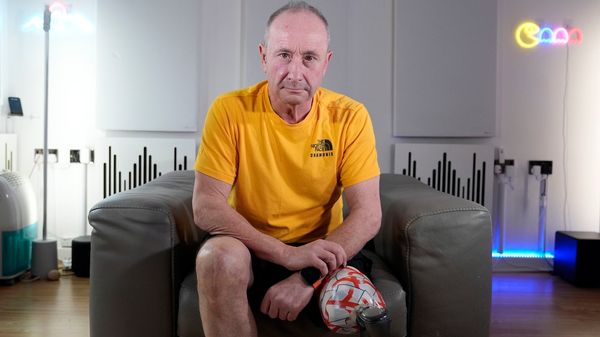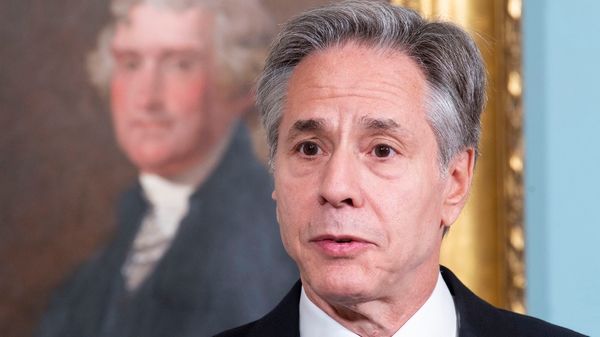April 11, 2014
LGBT Youth and Allies Participate in GLSEN Day of Silence
Winnie McCroy READ TIME: 5 MIN.
When the school bell rings today, LGBT students and their allies will be cheering especially loud, and not just because it's Friday. April 11 marks the 19th Annual GLSEN Day of Silence, an event to raise awareness about the pervasiveness of anti-LGBT name-calling, bullying and harassment in schools.
LGBT students and their allies will remain silent throughout the school day or during non-instructional time to illustrate the silencing effect of anti-LGBT bias and behavior.
"GLSEN's Day of Silence has changed me as a person," said Christin Manus, a 17-year-old high school junior from Dacula, Ga. "When I was a freshman in high school, I was incredibly shy and not quite out of the closet. I found it difficult to love myself and speak out. I came out on Day of Silence that year. People called me fag and slammed me into lockers. Day of Silence is important to me because I want to be the voice of all the kids who are afraid and scared to be who they are."
GLSEN's Day of Silence is a student-led event modeled after peaceful and non-violent protests throughout history. The action was created by students at the University of Virginia in 1996, inspired by former NAACP Chairman Julian Bond and a class he teaches on the history of the Civil Rights Movement. The Day of Silence became a GLSEN program in 2001 and has grown to one of the largest youth events in the world.
"For nearly two decades, students across the country -- and now the world -- have come together on GLSEN's Day of Silence to show their support for peers who are experiencing anti-LGBT bullying and to urge schools to take action to make their hallways, classrooms and locker rooms safer for LGBT students," GLSEN Executive Director Eliza Byard said.
"Our society has come a long way since students created the Day of Silence in 1996, but LGBT students still face extreme levels of victimization and we need to do more to ensure that they are safe and respected. The Day of Silence continues to play an important role in advancing that dialogue," added Byard."
More than 8 out of 10 LGBT students (82 percent) are harassed at school each year because of their sexual orientation and more than 6 out of 10 (64 percent) because of their gender expression, according to GLSEN's 2011 National School Climate Survey. More than 31 percent of LGBT students said they missed at least a day of school in the past month because they felt unsafe.
The report also found that students who are more frequently harassed skip school more often, have lower grade point averages, higher rates of depression and lower self-esteem, and are less likely to go on to college.
The report shows, however, that students at schools that take action to address anti-LGBT bias and behavior -- such as supporting students who participate in GLSEN's Day of Silence -- experience less victimization, have better educational outcomes and report better mental health.
To participate, students often wear shirts, stickers or buttons and hand out speaking cards to explain why they are silent. The card reads:
"Please understand my reasons for not speaking today. I am participating in the Day of Silence, a national youth movement bringing attention to the silence faced by lesbian, gay, bisexual and transgender people and their allies. My deliberate silence echoes that silence, which is caused by anti-LGBT bullying, name-calling and harassment.
"I believe that ending the silence is the first step toward building awareness and making a commitment to address these injustices. Think about the voices you are not hearing today."
Students from more than 8,000 middle schools, high schools and colleges in every state, the District of Columbia and 70 countries participated in the Day of Silence in 2013.
Organizing a Day of Silence (DOS) activity or event can be a positive tool for change-both personally and community-wide. By taking a vow of silence, you're making a powerful statement about the important issue of anti-LGBT bullying, and when you organize others to join you that message becomes stronger
While you do have a right to participate in the Day of Silence between classes and before and after school, you may not have the right to stay silent during instructional time if a teacher requests for you to speak.
According to Lambda Legal, "Under the Constitution, public schools must respect students' right to free speech. The right to speak includes the right not to speak, as well as the right to wear buttons or T-shirts expressing support for a cause." But this right to free speech doesn't extend to classroom time.
"If a teacher tells a student to answer a question during class, the student generally doesn't have a constitutional right to refuse to answer," advises Lambda Legal. GLSEN reminds participants that students who talk with their teachers ahead of time are more likely to be able to remain silent during class.
Winnie McCroy is the Women on the EDGE Editor, HIV/Health Editor, and Assistant Entertainment Editor for EDGE Media Network, handling all women's news, HIV health stories and theater reviews throughout the U.S. She has contributed to other publications, including The Village Voice, Gay City News, Chelsea Now and The Advocate, and lives in Brooklyn, New York.




